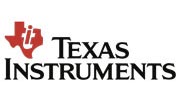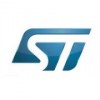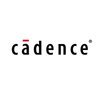Filter interviews by
STMicroelectronics Analog Design Engineer Interview Questions and Answers
STMicroelectronics Analog Design Engineer Interview Experiences
2 interviews found
I applied via Referral and was interviewed before Oct 2023. There were 2 interview rounds.
Talk about your last experience in the company
(2 Questions)
- Q1. What is your weakness?
- Ans.
I tend to be overly critical of my own work, which can sometimes slow down my progress.
I have a tendency to overanalyze my work, leading to delays in completion
I am constantly striving for perfection, which can be both a strength and a weakness
I am working on finding a balance between striving for excellence and being overly critical
- Q2. Why STMicroelectronics
- Ans.
STMicroelectronics is a leading global semiconductor company known for its innovative analog design solutions.
STMicroelectronics has a strong reputation for producing high-quality analog products.
The company offers a wide range of analog ICs for various applications such as power management, signal conditioning, and data conversion.
STMicroelectronics has a history of successful collaborations with industry leaders in v...
Interview Preparation Tips
I applied via Campus Placement and was interviewed before May 2023. There was 1 interview round.
(1 Question)
- Q1. Transistor level circuit question
Interview Preparation Tips
Top trending discussions







Interview questions from similar companies

Analog Design Engineer Interview Questions & Answers
Texas Instrumentsposted on 6 Apr 2016
Interview Questionnaire
8 Questions
- Q1. Output Response of RLC circuits
- Ans.
The output response of RLC circuits is the behavior of the circuit's output voltage or current over time.
The output response depends on the values of the resistance (R), inductance (L), and capacitance (C) in the circuit.
RLC circuits can exhibit different types of responses, such as overdamped, underdamped, or critically damped.
The response can be analyzed using differential equations or Laplace transforms.
For example,...
- Q2. Effect of temperature on Leakage current
- Ans.
Temperature has a significant effect on leakage current in analog circuits.
Leakage current increases with temperature due to increased carrier generation and diffusion.
Higher temperatures can cause increased leakage current through reverse-biased junctions.
Temperature coefficients are used to quantify the change in leakage current with temperature.
Thermal management techniques are employed to minimize the impact of tem...
- Q3. Some Tricky questions on KCL and KVL
- Q4. Complex RC circuits
- Ans.
Complex RC circuits are circuits that contain resistors and capacitors in a series or parallel configuration.
The time constant of a complex RC circuit can be calculated using the product of resistance and capacitance.
Complex RC circuits can be used in filters, oscillators, and timing circuits.
The behavior of a complex RC circuit can be analyzed using circuit analysis techniques such as Kirchhoff's laws and nodal analys
- Q5. Effect of opamp's bandwidth
- Ans.
The bandwidth of an opamp affects its ability to amplify high-frequency signals.
Opamp bandwidth determines the range of frequencies it can amplify effectively.
A higher bandwidth allows the opamp to amplify higher frequency signals accurately.
A lower bandwidth limits the opamp's ability to amplify high-frequency signals.
Opamp bandwidth is typically specified in terms of the -3dB frequency.
Bandwidth can be improved by us...
- Q6. Question on power dissipation in a CMOS circuit
- Q7. Bode Plot Analysis
- Q8. One valid reason, why you won't go for a MS, apart from financial crisis
- Ans.
Prefer gaining industry experience over academic research
Desire to gain practical experience in industry
Interest in applying knowledge in real-world projects
Preference for hands-on learning and problem-solving in a work environment
Interview Preparation Tips
Experience: Shortlisted mostly on the basis of Percentage. Anyone above 70% was selected.
Round: Technical Interview
Experience: Tested basic concepts of Electronics.
Round: Technical Interview
Experience: Interview to test some advanced concepts.
Skill Tips: While appearing for TI, be very thorough with the concepts of RC circuits. This is the first thing they test.
Skills: Analog Circuits, Analog And Digital Knowledge, RC Circuits
College Name: Netaji Subhas Institute Of Technology, Delhi

Analog Design Engineer Interview Questions & Answers
Texas Instrumentsposted on 1 Dec 2015
Interview Preparation Tips
Experience: Texas Instruments is the first semiconductor company visiting the campus. The selection procedure involves a screening test, a technical interview and a final HR interview. Pointer cutoff will generally be 6 or 7, and PCs can even request to not have any cutoff if there are enough resources (computers) to conduct online screening test.
General Tips: Department courses such as Analog Electronics, Linear Signals and Systems, Linear Control Systems, Linear Integrated Circuits are very important. More emphasis is given to Network Theory and Feedback theory. Questions will be tricky in the sense that you might not have seen them before, but can be solved with intuition and less math. By intuition, I mean the answers follow from application of basic principles of network theory (superposition, Thevenin etc). Very good articles on Network and Feedback theory can be found at Prof. KRK Rao's website.
Skill Tips: In the interview, it is okay if you don't know the answer to any question. But try to use the hints provided by the interviewer and solve the problem. They are more concerned about your approach rather than the answer.
Skills:
College Name: NIT Surathkal

I applied via Campus Placement and was interviewed in Dec 2016. There were 4 interview rounds.
Interview Preparation Tips
Experience: 25 questions of only aptitude
Tips: Good if you have speed and accuracy
Duration: 1 hour
Round: Technical Interview
Experience: Few qsns on basic resistors and capacitors. Mostly based on resume. Asked me about each and every project i have put in my resume.
Tips: Better be through with timing analysis
Round: HR Interview
Experience: Questions like tell me about yourself,why intel,y you,any great learnings from your life in insti,and some points from my resume
Tips: Prepare standard questions like tell me about yourself, strengths, weeknesses,and somethings about the company and why not other companies
College Name: IIT Madras

Analog Design Engineer Interview Questions & Answers
Texas Instrumentsposted on 10 Oct 2022

(2 Questions)
- Q1. Basic technical qns from analog and few digital
- Q2. Qns about mosfets, ce cb config, some c questions
(1 Question)
- Q1. Projects based qns, basic analog qns, and few digital ones.
Interview Preparation Tips
know everything in your resume very well. communicate confidently. be prepared with basic analog subjects and digital to an extent

Analog Design Engineer Interview Questions & Answers
Texas Instrumentsposted on 2 Aug 2023
I applied via Campus Placement and was interviewed in Jul 2023. There were 3 interview rounds.

It was very nicee, time was very less
(1 Question)
- Q1. Basic diode, op amp circuits, ADC, DAC

Analog Design Engineer Interview Questions & Answers
Texas Instrumentsposted on 27 Aug 2023

Basic questions of aptitude
(3 Questions)
- Q1. Basic questions of circuit theory and analog
- Q2. Bode plot questions
- Q3. Rc network with constant current source
- Ans.
An RC network with a constant current source is used to create a voltage output that is proportional to the input current.
RC network consists of a resistor (R) and a capacitor (C) connected in series or parallel.
Constant current source ensures a steady current flows through the network.
The voltage output across the RC network is determined by the time constant (RC) and the input current.
This configuration is commonly u

Analog Design Engineer Interview Questions & Answers
Texas Instrumentsposted on 9 Nov 2024
Easy if you managae time well otherwise time will be not sufficient
(2 Questions)
- Q1. Introduction about myself
- Q2. Technical questions on basics

Analog Design Engineer Interview Questions & Answers
Texas Instrumentsposted on 16 Sep 2022
I applied via Campus Placement and was interviewed in Aug 2022. There were 2 interview rounds.
90 minutes with 20 questions of Analog and Aptitude each. Topics are Basic Network Theory, Diode, Op-amps, etc. Topics may vary place-to-place.
(6 Questions)
- Q1. Questions are cumulative: Draw a Lowpass filter (RC)
- Q2. Add capacitor parallel to one resistor and tell frequency response
- Ans.
Adding a capacitor in parallel to a resistor changes the frequency response of the circuit.
The cutoff frequency of the circuit decreases as the capacitance increases.
The circuit becomes a high-pass filter with a -20dB/decade slope above the cutoff frequency.
The impedance of the capacitor decreases as frequency increases, allowing more current to flow through the circuit.
The resistor and capacitor form a voltage divider...
- Q3. Add resistor to the capacitor and tell frequency response
- Ans.
Adding a resistor to a capacitor changes the frequency response of the circuit.
The cutoff frequency of the circuit decreases with increasing resistance.
The circuit becomes more attenuative at higher frequencies.
The time constant of the circuit increases with increasing resistance.
The circuit becomes more stable and less prone to oscillation.
Example: A low-pass filter with a 10uF capacitor and a 1kohm resistor has a cut
- Q4. T-flip flop mod3 counters and reset
- Q5. A tricky diode based network question with both cases(ideal and non-ideal diode)
- Q6. Aptitude question of 1000 bottles and one poisoned
Interview Preparation Tips
- Network Theory
- Opamp
- Filters
- Diode
STMicroelectronics Interview FAQs
Tell us how to improve this page.
STMicroelectronics Interviews By Designations
- STMicroelectronics Intern Interview Questions
- STMicroelectronics Software Engineer Interview Questions
- STMicroelectronics Design Engineer Interview Questions
- STMicroelectronics Project Intern Interview Questions
- STMicroelectronics Analog Design Engineer Interview Questions
- STMicroelectronics Staff Engineer Interview Questions
- STMicroelectronics Technical Lead Interview Questions
- STMicroelectronics Software Developer Interview Questions
- Show more
Interview Questions for Popular Designations
- Analog Layout Engineer Interview Questions
- Design Engineer Interview Questions
- RTL Design Engineer Interview Questions
- Design Engineer II Interview Questions
- Mechanical Engg. Design Interview Questions
- Senior Design Engineer Interview Questions
- Electrical Design Engineer Interview Questions
- Layout Design Engineer Interview Questions
- Show more
STMicroelectronics Analog Design Engineer Interview Process
based on 2 interviews
Interview experience
Analog Design Engineer Interview Questions from Similar Companies
Fast track your campus placements
STMicroelectronics Analog Design Engineer Reviews and Ratings
based on 1 review
Rating in categories
|
Technical Lead
95
salaries
| ₹11.1 L/yr - ₹37 L/yr |
|
Staff Engineer
45
salaries
| ₹18 L/yr - ₹46.6 L/yr |
|
Senior Design Engineer
42
salaries
| ₹8.2 L/yr - ₹27 L/yr |
|
Design Engineer
29
salaries
| ₹9.1 L/yr - ₹21 L/yr |
|
Senior Systems Engineer
23
salaries
| ₹9.6 L/yr - ₹20 L/yr |

Qualcomm

Intel

TDK India Private Limited

Molex
- Home >
- Interviews >
- STMicroelectronics Interview Questions >
- STMicroelectronics Analog Design Engineer Interview Questions













